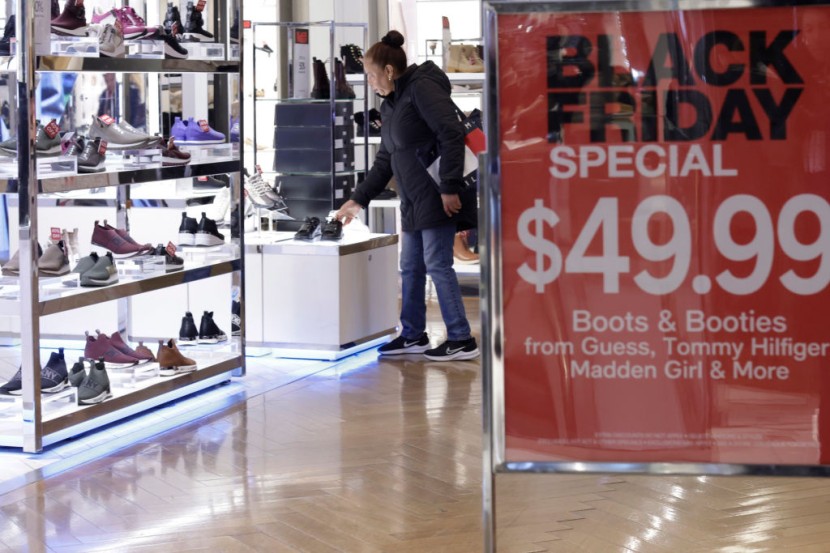In years past, Black Friday - the fourth Friday of November and immediately the day after Thanksgiving - was a tradition only American shoppers observe. The day highlights consumers rushing into malls to get the best deals and in order to purchase items either as upgrades at home and office or as gifts to the nearest and dearest.
Its proximity to Christmas made the two days of November, for all intents and purposes, the beginning of the winter holiday season.
However, as the digital age and the COVID-19 pandemic shaped the 2020s so far, observers in the retail industry have noticed a shift in how consumers shop - not only on Black Friday but for the rest of the year - as retailers engage in promoting Black Friday deals weeks or months ahead of Thanksgiving.
"When you think about Black Friday, the competitive landscape has really shifted to Black Friday deals prior to Black Friday," Macy's CEO Jeffrey Gennette was quoted by the New York Times when he told investors on a recent call as he explained why the company was spreading out its promotions. "We're in the midst of that along with our competitors."
Prior to 2020, Black Friday was iconically boisterous, predatory, and even a powder keg of crimes as consumers fought one another to buy products at their best prices. Since then, the long lines, the camping out, and the mad dash have disappeared, but Black Friday remained a buzzword for the shopping frenzy gripping Americans every fourth week of November.
"It's still a cultural event, but it's not what it was some years ago," retail consultancy Customer Growth Partners founder Craig Johnson said. "It's nothing like it used to be."

Origins of Black Friday
The term "Black Friday" was coined back in the 1960s by police officers in Philadelphia in response to an overwhelming throng of tourists storming retailers in the city on the day after Thanksgiving and before the annual Army-Navy football game the Saturday after.
Since the incident, retailers embraced the interest by extending store hours to accommodate more shoppers and become more competitive in the market. However, the original meaning was lost on many people - who came to understand being in the "black" as a reference to profits at retailers (compared with red, which signified losses).
As a result, Black Friday sales became a fixture on the US national calendar in the following decades.
Due to incidents of unruliness and even casualties in the past few years, many retailers, including Walmart, have decided to stay closed on Thanksgiving, reversing the trend due to complaints from retail workers.
The 21st century saw the expansion of the Black Friday retail tradition across the West, and according to Arizona State University business professor Dale Rogers, what started off as "a little American thing" became global.
Read Also : How To Avoid Black Friday Christmas Scams
Earlier Black Friday Deals
As retailers in the late 2010s dealt with riots across their stores, some of them were encouraged to extend Black Friday deals weeks before Thanksgiving as a way to avoid scuffles and criminal acts, but also to take advantage of the probability of a higher profit.
Johnson said that retailers slowly introduced earlier Black Friday sales, with some beginning as early as October.
"If you're a retailer, you don't want to capture demand by dropping your prices so low that you don't make money," he added. "The way most people capture demand is by targeting early demand."
An Adobe Analytics study saw consumers spending 5% more online in the first 20 days of November than they did in the same period last year.
Many retailers also said that spending on the other end of the winter holiday shopping calendar - the days immediately before Christmas - was more important as people rush to buy last-minute gifts.
Since the beginning of normalizations post-COVID, companies have spent much of the past year celebrating a surprisingly resilient consumer who has continued to spend despite inflation and rising interest rates.
However, many executives told analysts last quarter that shoppers have started pulling back.
The Federal Reserve has raised interest rates rapidly beginning March 2022 in an effort to slow down the economy and curb inflation. Though the rate at which prices were rising had eased significantly, the overall increase in prices was starting to weigh on consumers, limiting the amount of discretionary income at their disposal.
Analysts further expect that consumers would be more likely to take advantage of promotions and less likely to make bigger purchases like furniture or certain electronics.
"Consumers are feeling the weight of multiple economic pressures, and discretionary retail has borne the brunt of this weight for many quarters now," Target CGO Christina Hennington told analysts on a recent earnings call.
Best Buy CEO Corie Barry additionally told analysts earlier this week that the company was "preparing for a customer who [was] very deal focused" and was expecting sales to concentrate on major shopping days like Black Friday, Cyber Monday, and the days just before Christmas.
The National Retail Federation, an industry trade group, also forecast that winter holiday sales would increase by 3% to 4% from last year, which was in line with pre-pandemic levels but not as high as the past two years. Fourth-quarter holiday sales rose 5.3% in 2022 and 12.7% in 2021.








